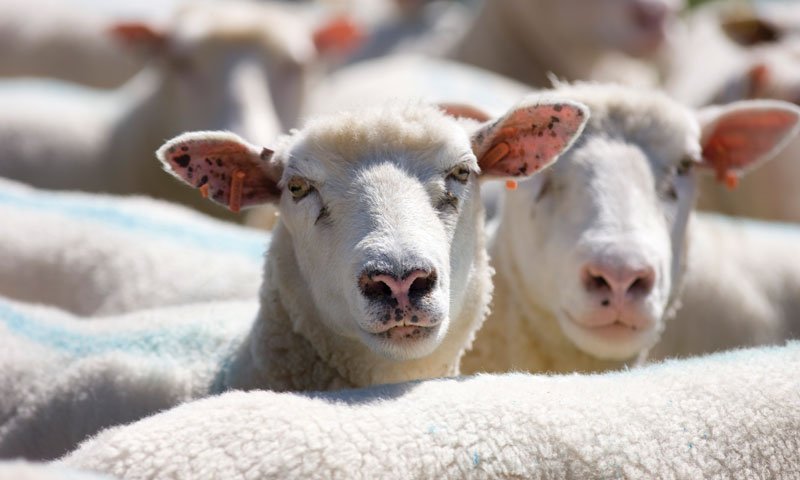Genomics study to help retain diversity in UK sheep
Analysis of 13 breeds reveals complex histories and underscores value of genetic resources to retain diversity.
Insights into the genetic makeup of UK native sheep breeds can help to preserve their beneficial traits, especially of rarer native breeds, which have fallen to low numbers, a study has shown.
The outcomes could help preserve a diversity of characteristics found in sheep breeds from the UK, including many versatile types of fleece, the ability to seasonally shed, and the hardiness to thrive in harsh environments.
Researchers at the Roslin Institute generated and analysed data on the DNA of UK sheep breeds to understand their genetic diversity, relatedness, and their demographic histories.
Their results could be useful in sheep breeding and management, by establishing baseline genetic data which could eventually enable selection of genes linked to specific traits in each breed. This would help ensure food security and support sheep health and welfare.
This approach could also contribute to the conservation of rare breeds with relatively small population sizes.
Safeguarding diversity
Scientists used technology that samples thousands of genetic points of interest within the entire genetic code of sheep to gather information on 13 breeds that are native to the UK.
Their analysis generated fresh data on the genetic backgrounds of these breeds, which included six on the watch list of the Rare Breed Survival Trust.
The outcomes of the study reveal a complex demographic history for these breeds, and represent a valuable first step in documenting their genetics in order to safeguard a diverse native sheep population, the team says.
Findings from the study could help inform breeding and conservation, particularly of breeds with small population sizes, to help safeguard them against the threats associated with changing climates, including emerging infectious diseases, such as blue tongue virus.
“Our findings underscore the value of native UK breeds of sheep in terms of their diverse genetics, which to date have not been well documented.
The genes driving their unique characteristics will be key resources for the sheep sector in the future, as challenges to sheep production increase due to changing climates, emerging disease threats, and economic pressures.”
“Our results highlight the genetic diversity of the sheep breeds native to UK and demonstrate what a vital and unique resource they provide to the UK agricultural biodiversity.”
* The Roslin Institute receives strategic investment funding from the Biotechnology and Biological Sciences Research Council and it is part of the University of Edinburgh’s Royal (Dick) School of Veterinary Studies. *
For further information, please contact:
Roslin Institute
The University of Edinburgh
Easter Bush Campus
Midlothian, EH25 9RG
Reception
T: +44 (0)131 651 9100


